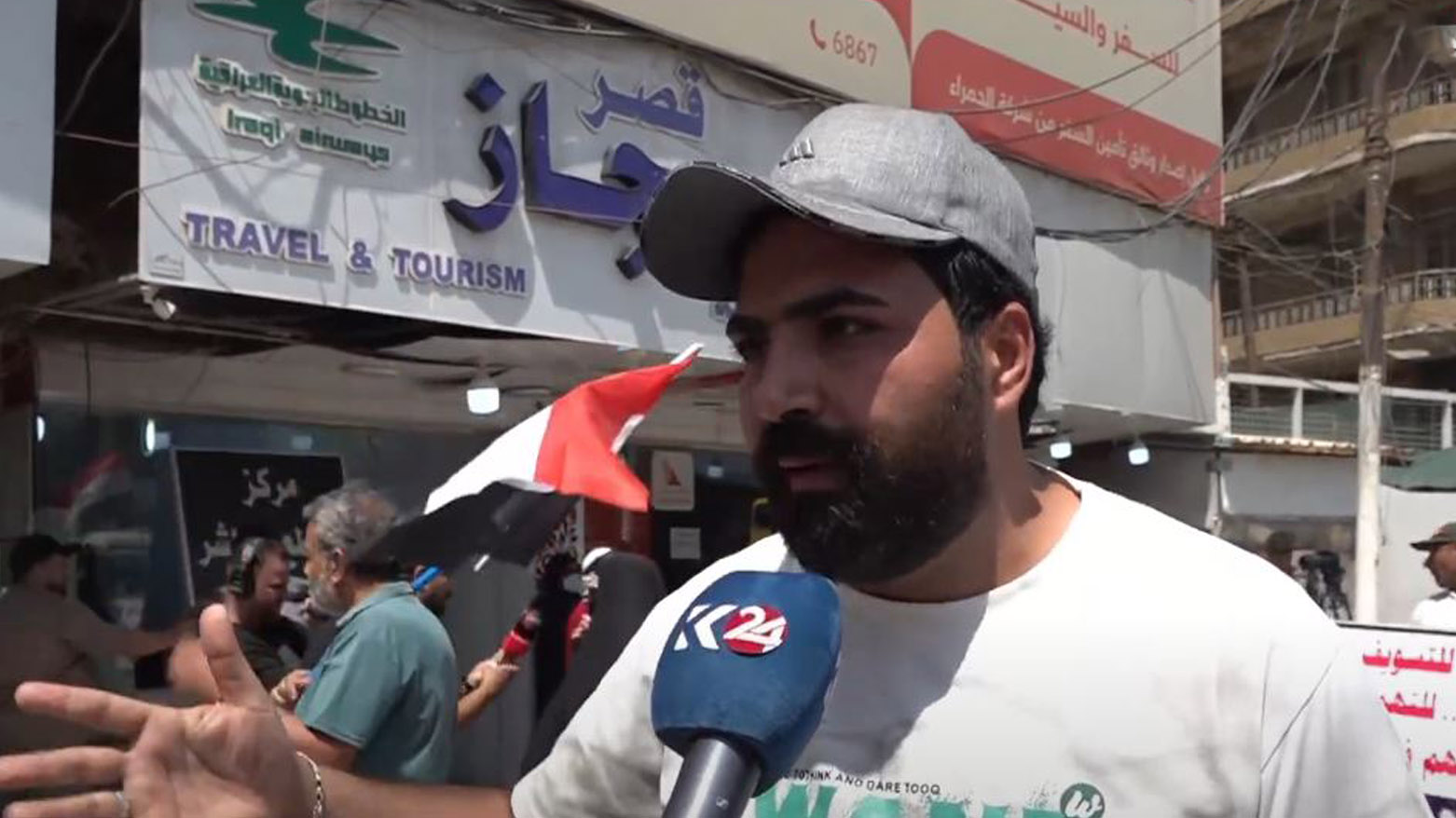Seven Protests, 40 Years, Still No Justice for Iraq’s HIV Victims
The case stems from a 1986 deal in which Iraq's Health Ministry bought hemophilia medication from the French company Marion, later found to be contaminated with HIV-infected blood, infecting numerous patients.

By Kamaran Aziz
ERBIL (Kurdistan24) – The families of Iraqi victims affected by a contaminated drug supplied by the French pharmaceutical company "Marion" gathered outside the French Embassy in Baghdad on Monday, demanding compensation and justice after nearly four decades of silence.
The protest marks the seventh such demonstration by victims' families, who continue to call on both the French government and Iraqi authorities to take action. The case dates back to 1986, when Iraq’s Ministry of Health signed a contract with Marion to procure a specialized medication for hemophilia patients.
Following the administration of the drug, numerous patients contracted the HIV/AIDS virus due to the medication being contaminated with infected blood. Many victims subsequently died, while others continue to suffer long-term health consequences.
Despite Iraq's earlier legal actions and formal compensation demands directed at the company, the victims' families assert that no restitution has been received.
One demonstrator told Kurdistan24’s Shvan Jabari, “Victims of this French company's medication have been compensated in Saudi Arabia, the UAE, and other countries. Only in Iraq has there been no compensation. We call on the French Embassy in Baghdad and the Federal Government to step in and provide us justice.”
Another protester added, “This is our seventh protest, and none of them have yielded any results. We previously met with the Minister of Health and other officials from the federal government, and many promises were made—but none were fulfilled. We are only asking for our rights. We don’t understand why no one is responding to our demands.”
A participant shared a personal account, recalling the devastating impact on her family: “My father contracted the illness decades ago. He was admitted to the hospital just to receive the medication from that French company. Day by day, his health worsened, and to this day, his condition remains very poor. More than 40 years have passed, and we have still not been compensated.”
The protesters reiterated their demand for official recognition, fair compensation, and urgent intervention from both the French diplomatic mission in Baghdad and Iraq's federal institutions.
As pressure mounts and frustrations grow, the victims’ families continue their fight for accountability—hoping that their decades-long ordeal will finally receive the attention and justice it deserves.